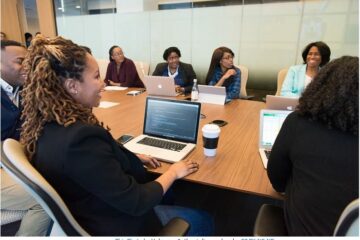Title: The Evolution of English Language Teaching: From Grammar Rules to Functional Language Skills
The teaching of English as a second language (ESL) has undergone significant transformation over the last few decades. In the late 20th century, particularly during the 1980s, traditional grammar-focused methods were largely set aside in favor of a more practical and effective approach: teaching through language function and lexical chunks, or word groups. This shift has shaped the way English is taught across the globe, placing a stronger emphasis on communication and functionality over rigid grammar rules. At Ewaylearn, we’re proud to adopt this progressive methodology, focusing on advanced communication skills that empower teachers—and, in turn, their students—to speak English confidently and naturally.
From Grammar to Function: A New Way to Teach English
For much of the 20th century, teaching English meant hours spent on grammatical structures and sentence diagramming. However, as educators observed learners struggle to apply these rules in real-life conversation, a change was necessary. By the 1980s, leading experts in language education recognized that an approach focusing on language functions—or the purpose and use of language in communication—was far more effective. Rather than drilling students on parts of speech, this method emphasizes phrases or lexical chunks that could be directly applied in conversation.
This paradigm shift was pivotal. Lexical chunks, which include phrases like “How are you doing?” or “Would you mind if…,” allow learners to bypass the complexity of grammar rules and communicate effectively in everyday situations. With this approach, students gain fluency faster, speaking with confidence and understanding without feeling bogged down by grammar.
Why Teaching Lexical Chunks is Effective
- Natural Flow of Conversation: Teaching phrases and chunks instead of isolated words enables learners to produce complete sentences without assembling them word by word. This approach mirrors how native speakers naturally use language, creating a flow that feels more authentic.
- Increased Confidence in Speaking: By learning phrases they can use immediately, students feel less intimidated and more inclined to participate in conversations. This immediate applicability leads to higher confidence and a greater sense of accomplishment.
- Enhanced Listening Comprehension: When students learn common phrases and chunks, they’re also better equipped to understand spoken English. This familiarity with language functions aids comprehension, making it easier for them to follow conversations with native speakers.
- Reduced Cognitive Load: Focusing on meaning and usage, rather than dissecting grammatical structure, reduces the mental burden on learners. They are free to focus on communication rather than overthinking every word choice, leading to faster language acquisition.
Ewaylearn’s Approach: Training Teachers to Lead with Function, Not Grammar
At Ewaylearn, we’re committed to empowering teachers with advanced communication skills through the language function approach. Our training equips educators to teach English in a way that prioritizes practical language use over complex grammatical explanations. We focus on:
- Functional Language Skills: By training teachers in functional language skills, we ensure they can guide students toward effective communication. This method prepares teachers to provide students with phrases and expressions they can use right away, leading to improved conversational abilities.
- Building Contextual Knowledge: Ewaylearn encourages teachers to integrate situational and contextual learning, where students use phrases based on specific settings—like ordering at a restaurant or asking for directions. This real-world application is invaluable for English learners.
- Hands-On Practice and Role-Playing: Our training emphasizes active use of language. Teachers learn to implement role-playing exercises, conversations, and situational activities that replicate real-world scenarios, reinforcing lexical chunks and language functions naturally.
- Confidence-Building Techniques: With the goal of creating a supportive learning environment, Ewaylearn also emphasizes techniques that build students’ confidence. Teachers learn to encourage students to use the language fearlessly, making mistakes a part of the learning process rather than a barrier.
Why the Functional Approach Matters in Today’s World
English is no longer just a subject in school; it is the global language of business, technology, and intercultural exchange. Learners need to be able to communicate effectively, not just pass tests. The functional approach enables students to start using English immediately, applying it in daily interactions in ways that make sense. This skill set is especially valuable in today’s fast-paced, interconnected world where confidence and fluency in English are essential for personal and professional growth.
Conclusion: Ewaylearn’s Vision for English Language Education
As English teaching methods continue to evolve, Ewaylearn stands at the forefront, providing teachers with the tools and training to lead their students on a path to genuine language fluency. By embracing the language function approach, we focus on making English a tool for communication, connection, and confidence, rather than a subject of rote grammar rules.
Through our innovative training programs, Ewaylearn is shaping a new generation of ESL educators who are ready to make learning English a practical, engaging, and empowering experience. With the right approach, teachers can transform language learning, giving students not just a grasp of English, but the ability to use it meaningfully in their everyday lives.


